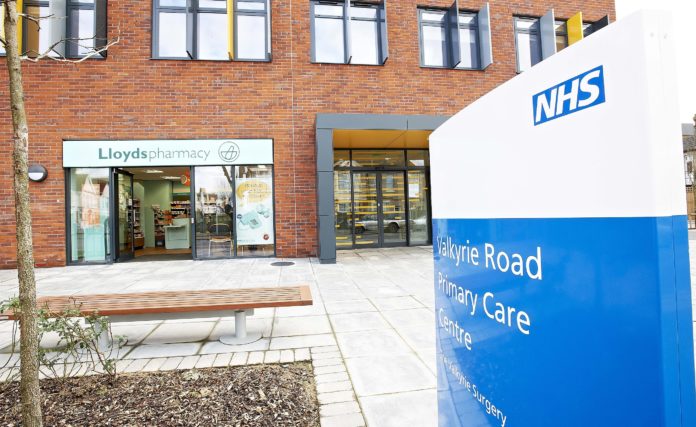
Contrary to most reporting on the subject NHS England has not completely and irrevocably stopped prescribing hormones. New puberty blocker prescriptions have however been halted, likely temporarily.
NHS England has issued a new policy document stating that new puberty blocker prescriptions will no longer be issued once the planned closure of Tavistock & Portman is finalised on the 31st of March.
On the 1st of April, new services will be opening elsewhere in the country – with 8 promised according to the interim Cass report. These services will continue to honour current prescriptions for puberty blockers alongside providing them for those already referred to endocrinology but not yet receiving the treatment.
Documents also state that a previously proposed “exceptional circumstances” pathway to treatment has been dropped due to likely being inappropriate, inequitable and ineffective. Instead new puberty blocker prescriptions may still be accessed via NHS England’s Individual Funding Request system which comes with its own set of hurdles for patients and their doctors to navigate.
The evidence base used to come to this decision can be found here. In summary; overall there is a trend of small positive outcomes for transgender youth who receive puberty blocking medications – moreso for trans femmes than trans mascs. However the studies weren’t particularly robust and therefore NHS England made the decision to halt new puberty blocker prescriptions until better clinical research has been undertaken.
NHS England also state that work is well underway to develop the framework for study design. A National Research Oversight Board for Children and Young People’s Gender Services was established in 2023, chaired by Professor Sir Simon Wessely. The study is also been overseen by “other academic and clinical experts, and Dr Hilary Cass“. In November 2023, Professor Emily Simonoff (Kings College London) was confirmed as the Chief Investigator who will lead on study design.
I’m not saying any of this to sugarcoat my opinion here – it isn’t good and the fact that no new puberty blocker prescriptions will likely be given via NHS England services will absolutely harm thousands of trans youth – but it isn’t by any means over. There will be many challenges to this decision in the coming days, weeks and months.
Trans youth have had their healthcare halted once before when Keira Bell sued. New puberty blocker prescriptions were halted then – trans kids beat it then and they will beat it again.
It’s important to note that the evidence for halting puberty blockers isn’t that puberty blockers are proven to be bad in any respect. Quite the opposite. The “problem” according to NHS England is literally that the evidence for positive outcomes isn’t “good enough” – to which they point to things like a lack of control group in some of the studies they reference.
A control group in this context is a group of transgender youth who are told they are being given puberty blockers when they are actually being given a placebo. It’s hard to make an ethical case for literally experimenting on transgender youth like this when NHS England already acknowledges and accepts in these documents that this can lead to extreme distress and other harms to the patient.
NHS England is likely to find itself butting up against ethics a lot with its approach. The aforementioned study sounds good in theory – we all want the data – but in practice halting new puberty blocking prescriptions and making participation in research the only NHS pathway to treatment is extremely ethically dubious, as numerous critics have pointed out.
The proposed Cass Review GRA study would represent an appalling breach of research ethics from the NHS, academics, and Government.
If you are a healthcare researcher, please consider putting in a formal complaint. Info here: https://t.co/lZ19ivCSqP
— Ruth Pearce (@NotRightRuth) July 1, 2022
It’s also worth noting that these recommendations come in part off the back off the interim Cass Review. A review into healthcare for trans youth which has also been widely criticised. Not least due to members of its board having spoken at SEGM (Society for Ethics in Gender Medicine) events. SEGM being an anti-trans network closely affiliated with pro-conversion therapy lobby groups and practitioners. One of which we’ve mentioned on Writes before…
The full review is yet to be released, but it is expected not to be good. Though again I doubt they will find the smoking gun they are looking for. The one that once and for all proves healthcare for trans youth is bad – but also I don’t think they will ever stop looking and/or promising you they will find it.
There won’t ever be one. There will only ever be the fearmongering. They will tell you to be afraid of PBs being off-label – but neglect to tell you a lot of pediatric medicine is off-label too. They will tell you to be afraid of PBs causing lowered bone density but neglect to tell you this resolves once the patient goes through puberty – like how bones work for nearly everyone. They will tell you there’s a significant increase in children attending gender clinics, 5000 up from 250 10 years earlier – while neglecting to tell you that fewer than 100 children are currently receiving puberty blocking medication in the UK.
They will tell you whatever it is they can to make you afraid enough to support their wholly irrational and dangerous position. It’s your job to resist it – in whatever way you can.










